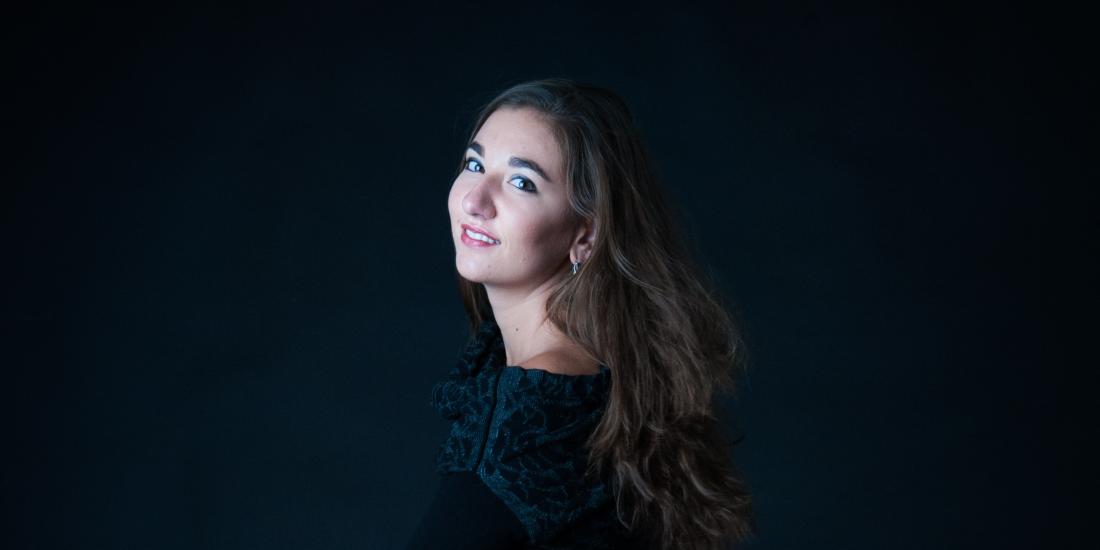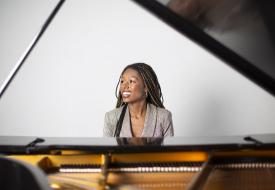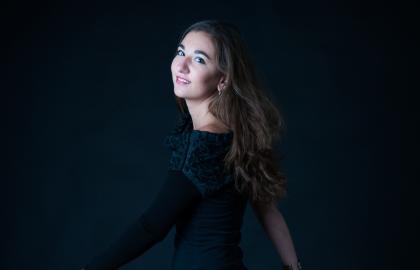You're from Brussels – so how does it feel to play at Bozar?
As a born and bred “Brusseleir”, it's really great to be able to sing at Bozar. From a young age, I came to listen to concerts and visit exhibitions. It's a hugely inspiring, vibrant and dynamic place to me, very close to where I live, but with a very broad view of the world. It feels a bit like playing a home match, but it's also a challenge, because the greatest musicians have played and sung on Bozar's stages. So I want to make it known that I'm worthy of that stage.
Your programme will feature works by well-known and somewhat lesser-known composers. Do you always try to find a balance in this?
Let's just say that such a balance between well-known and lesser-known work is not an immediate goal for me. What I do focus on strongly is putting together a programme as a finished whole. I always find it less engaging when there's no line to be drawn between the works played at a concert. To avoid that, I look for what goes together, yet still has the necessary variety. This concert puts the Italian solo cantata on the menu and showcases three facets of the genre, by three different composers from three different generations. Between Monteverdi's solo madrigals and Vivaldi's late Baroque solo cantata is some work by Barbara Strozzi. She's the least known of the three, but her contribution is very personal: more compact, more lyrical and yet direct. So her music shows a different facet of the genre. It's also fascinating for the audience to hear some familiar and less familiar works. Some provide recognition, while lesser-known works show the versatility of our cultural heritage and allow us to rediscover certain things. And if that search for a consistent programme results in a balanced one, that's obviously a good thing.
With Phyllis Bartholomeus and Bart Naessens, you're including two resounding names from early music. How did the collaboration come about and how does it feel to make music together?
I've known Phyllis since I was a kid. We were at the same music academy and we still play chamber music together. We still make music with the same enthusiasm from the past, but we've learned a lot in the meantime. I got in touch with Bart when I was looking for a good harpsichordist. At the first rehearsal, it was clear that I was dealing with a basso continuo player of the first order: solid, reliable and someone who makes music. So I'm very happy to be able to perform this programme with musicians I click with. That might sound a bit clichéd, but it's important to be able to make music with some real zest. We therefore hope to share that same positive momentum with the audience.
Do you have a favourite composition?
That's a tough question. Actually, my favourite composition is always the work I'm singing. One of my teachers went even further and said, “The song you sing, you have to love to sing. But it's not enough for you to love the song as a whole; you also have to love each passage equally and sing them all with equal pleasure.” Apart from that, I have a soft spot for the music of Händel and Rossini. Not coincidentally, two composers who have written brilliant things for low female voice. I also enjoy exploring the contemporary repertoire. This isn't always the most accessible music, but it opens our ears to new, fresh sounds.
What is your greatest dream?
Singing, and the ability to be able to bring an artistry and integrity to the performance. Until corona, I worked on a personal, artistic project every year, creating a new composition each time. I hope I can pick up that thread and that there are concert organisers who'll continue to have the courage to support such projects. This is essential, because dreams in the world of music can only come true thanks to the cooperation of concert organisations. Another part of that dream is to develop my voice even further, both technically and musically, because the search for more nuances, more eloquence may be endless, but I want to take that as far as I can.
Finally, I hope to still be able to sing a lot, so I can reach the listeners and offer them a piece of beauty, and emotionally enrich them. The beauty of music is precisely that deepening, meaningful aspect.


